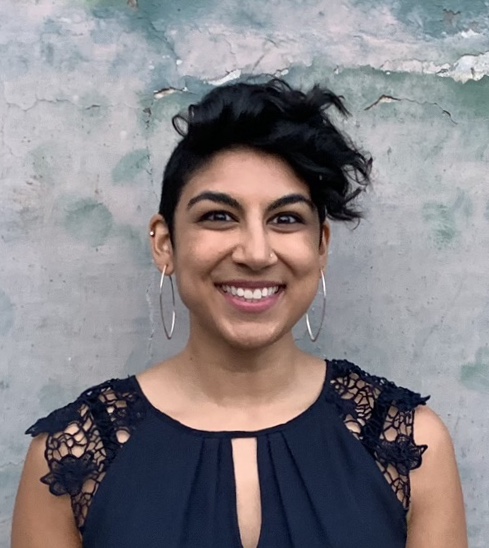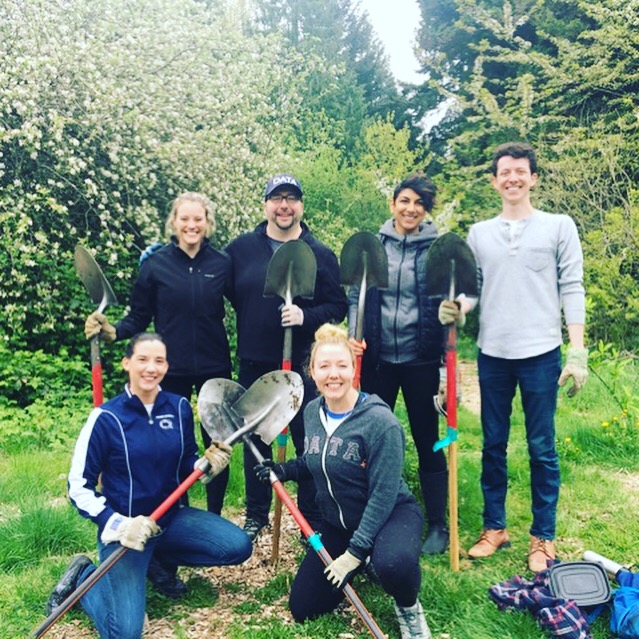Employees across Seattle are making a difference. It’s easy to get involved in small or large projects and to make an impact – every little bit helps. We love seeing innovation workers show up! Read about Seattle’s Inspirational Innovators, get excited, and find tips on how you can help.
This month we speak to Charmila Ajmera, Sales Readiness Program Manager at Tableau and part of the Diversity & Inclusion council at Tableau.
How long have you worked for Tableau and what do you do there?
I have been at Tableau for almost 7 years and have held a variety of roles. I started as an Executive Assistant and was able to build my career from there. Currently, I work as a Program Manager and Instructional Designer for our Sales Enablement team. I focus specifically on Leadership Development programs and help plan and execute all of the content for our yearly Global Sales Kick Off.
Did you grow up in the Seattle area or did you move here for work?
I have lived in Seattle for about 16 years. I moved here with my family right before I started High School.

How did you get interested in civic life and volunteering?
Giving back to community has always been a value in my family. My mom is a para-educator and always stressed the importance of educational support and opportunity for all kids, which prompted me to begin volunteering at my local YWCA preschool in high school. From there, I continued volunteering in my community throughout college and into my professional career.
On the civic engagement side, my dad was a big inspiration. He was born in India just as the country was emerging from colonial rule and establishing a democracy; he immigrated to the U.S. from India in the 1970s and has been an advocate for civic engagement my whole life. His passion for democracy was a huge factor in my decision to pursue International Relations as my undergraduate major, to travel all over the world as a young adult, and to get deeply involved in voter registration, elections, and advocacy. This is also a big reason why I decided to pursue a Masters of Public Policy and Governance at the University of Washington, where I am currently a part-time student.
What drew you to focusing on diversity & inclusion?
I am a second generation American and grew up in a bi-racial, bi-cultural family, so topics of diversity, inclusion, race, and belonging are deeply personal to me. I have often been “the only” and have straddled two worlds (America and India) my whole life. Especially after September 11th, when my family faced backlash in my suburban Kentucky community because we were the only brown people for miles, I dove into international and American history to try to figure out why me and my family were treated differently and why we were the target of hate and bigotry. This investigation spanned years of study, travel, and personal reflection and is a huge focus both in my work at Tableau and my education at the Evans School. Diversity & Inclusion are words that we hear much more often now (which is great!), but there is a huge opportunity for more people to take the time to really unpack what they mean and reckon with the uncomfortable realities of race, power, and privilege that they embody.
You do a lot of work both at Tableau and in the community. Can you give us glimpse at all the different things you’re doing?
I volunteered for years as a youth Tutor with Catholic Community Services. CCS is a really amazing organization and the services they provide to mainly low-income communities of color is absolutely vital. I also spent several years working on our Tableau Foundation Employee Board to help build and launch our Community Grants program and chair our Gender Equality grant-making committee. The last few years, I have served on our internal Diversity & Inclusion Council, partnering with our executive leadership team to create a strategy for how our company will address these important issues and working with my fellow employees on grassroots efforts.
At the Evans School, I have spent the last few years organizing with my fellow MPA students to advocate for curriculum reforms. We feel strongly that topics of race and equity should be deeply embedded into how public policy is taught, especially at the graduate level. This year, we have partnered with Evans faculty, staff, and students to form a Community of Practice that works with interested professors to revise their syllabi, readings, assignments, and class discussions to incorporate meaningful learning and conversation about race and equity. Our goal is that every graduate from the Evans school will go into the field with a deep awareness of the role public policy has played in perpetuating systems of inequality, and be equipped with the knowledge and tools to disrupt (and ideally dismantle) those systems in service of creating more just and equitable policy and legislation.
Aside from this, I am involved with my district political party and you can frequently find me registering folks to vote and canvassing for candidates I believe in. Civic engagement is the lifeblood of democracy and I believe that we all have a responsibility and a role to play in maintaining a healthy democratic system.

How do you handle balancing a FT job, graduate school, and the other civic activities you volunteer with?
It helped a lot that I went back to graduate school after working a few years. I have approached it much differently than my undergraduate degree! I prioritize sleeping, exercising, and seeing my friends and family. This has forced me to get really, really good at time management. It also helps that at work, school, and in my community I get to work on things that I am passionate and excited about, so it feels less like work and more like a mission I am deeply committed to.
What words of advice do you have for anyone interested in helping our community, but are unsure about where to start?
I think the most important thing to remember is that you are not alone. You do not have to fight for what you believe in or care about by yourself. There are LOTS of other people who care about the same issues that you do and want you to join them. In America we are often overwhelmed by the myth of the individual – especially when it comes to politics, activism, and social change. We focus on individuals and create a story about how they’re the only one doing anything and that if we want to do something meaningful, it has to be at that level or it’s not worth doing (think MLK, AOC, etc.). The reality is that every meaningful change in American history has been accomplished through sustained, collective action. So my first piece of advice is to find a community and get to work!
My second piece of advice is to start where you are – whether it’s work, school, your neighborhood, etc. Go online and find an organization working on an issue you care about and just go to a meeting or volunteer event they’re hosting. The biggest barrier people seem to have is that first step – showing up. But that’s really what it all comes down to. If you want to make a difference in your community or the world, start by just showing up. The rest will follow.
